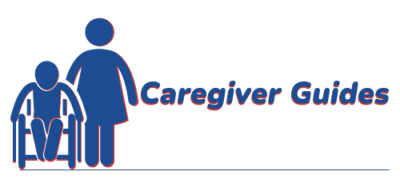
If you’re stepping into the role of a family caregiver, or if you’ve been in this role for a while, there’s always more to learn. Caring for an elderly family member is a journey filled with challenges and rewards. Ken Begley, in his article “16 things my parents taught me about being a family caregiver,” shares valuable lessons from his own experience. Let’s dive into these insights that can make your caregiving journey a bit smoother.
Recognize the Signs Early
First things first, it’s crucial to be observant. Changes in your loved ones’ health or behavior, like the onset of dementia, can be gradual. Early recognition of these signs means you can get the help and support they need sooner rather than later.
Caregiving is More Than Occasional Visits
Remember, swinging by once a month with a box of chocolates isn’t the same as providing care. True caregiving involves regular, often daily, involvement in your loved one’s life. It’s about being there, both physically and emotionally, and understanding their daily needs and challenges.
It’s a Team Effort
You don’t have to do it alone. Caregiving is a team sport. Involve other family members, friends, and professional caregivers. Sharing responsibilities can help prevent burnout and ensures your loved one receives comprehensive care.
Prepare for a Long-Term Commitment
Caregiving isn’t always a short-term task. It can stretch over years, even decades. It’s important to mentally and practically prepare for this long-term commitment. This might mean adjusting your lifestyle or seeking additional resources and support.
Embrace the Learning Curve
Every caregiving experience is unique, and there’s always something new to learn. Whether it’s understanding a medical condition, mastering a health care routine, or developing patience and empathy, view each challenge as an opportunity to grow.
Seek Support
Don’t hesitate to reach out for help. This could be professional support, like home health aides or therapists, or emotional support from support groups and other caregivers. Remember, taking care of yourself is just as important as taking care of your loved one.
Celebrate the Small Victories
In the midst of challenges, don’t forget to celebrate the small victories. Whether it’s a successful doctor’s visit, a good day with minimal pain, or a moment of joy and laughter, these small wins can be incredibly uplifting.
Stay Flexible and Adaptable
Caregiving situations can change rapidly. Staying flexible and adaptable is key. Be ready to adjust care plans, schedules, and your approach as your loved one’s needs evolve.
Keep Communication Open
Maintain open lines of communication with your loved one, other family members, and healthcare professionals. Clear communication helps in making informed decisions and ensures everyone’s on the same page.
Remember, You’re Not Alone
Finally, remember that you’re not alone in this journey. Millions of people are walking this path alongside you, each with their own stories and lessons. Lean on each other, share experiences, and support one another.
Caring for an elderly family member is no small feat. It requires patience, resilience, and a lot of love. But with these lessons in mind, you can navigate this journey with a bit more ease and confidence. Remember, what you’re doing is incredibly important, and your efforts make a world of difference in your loved one’s life.

Bryan Williams
Physical Therapist
is a licensed therapist with near 30 years of professional experience treating a diverse patient population in a multitude of settings. With simple strategies, he educates and empowers his clients with simple strategies to help them move better and with less pain.


